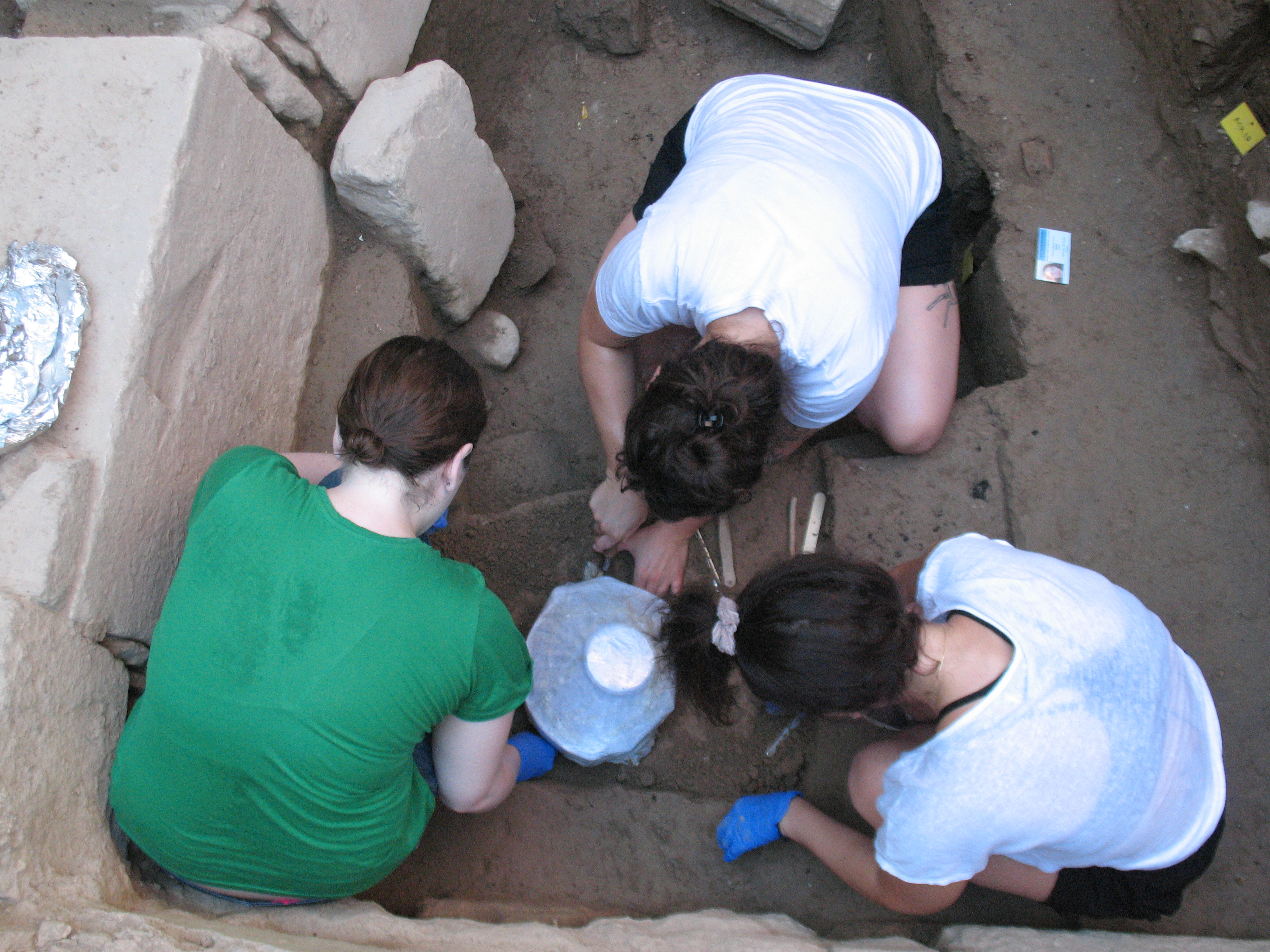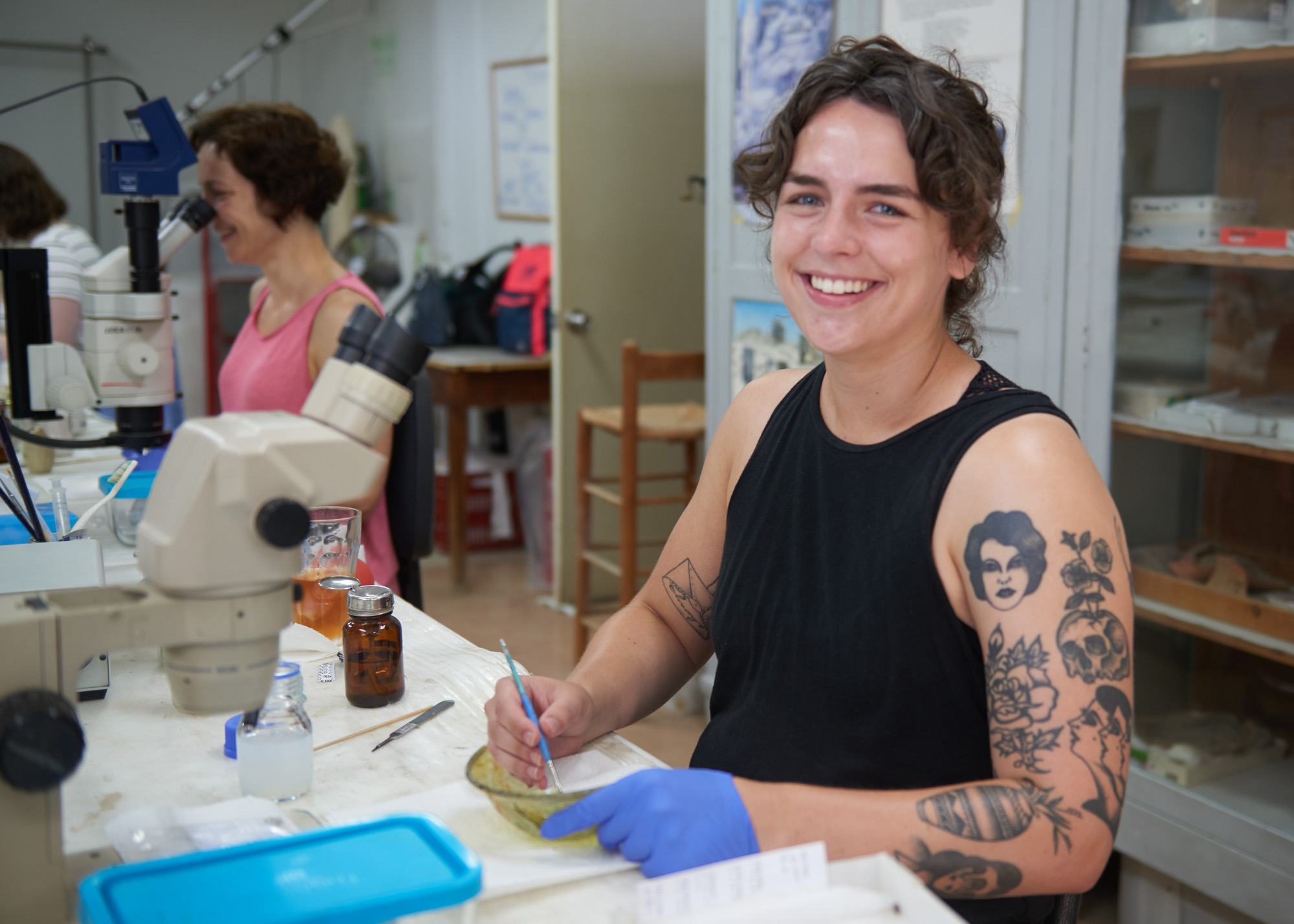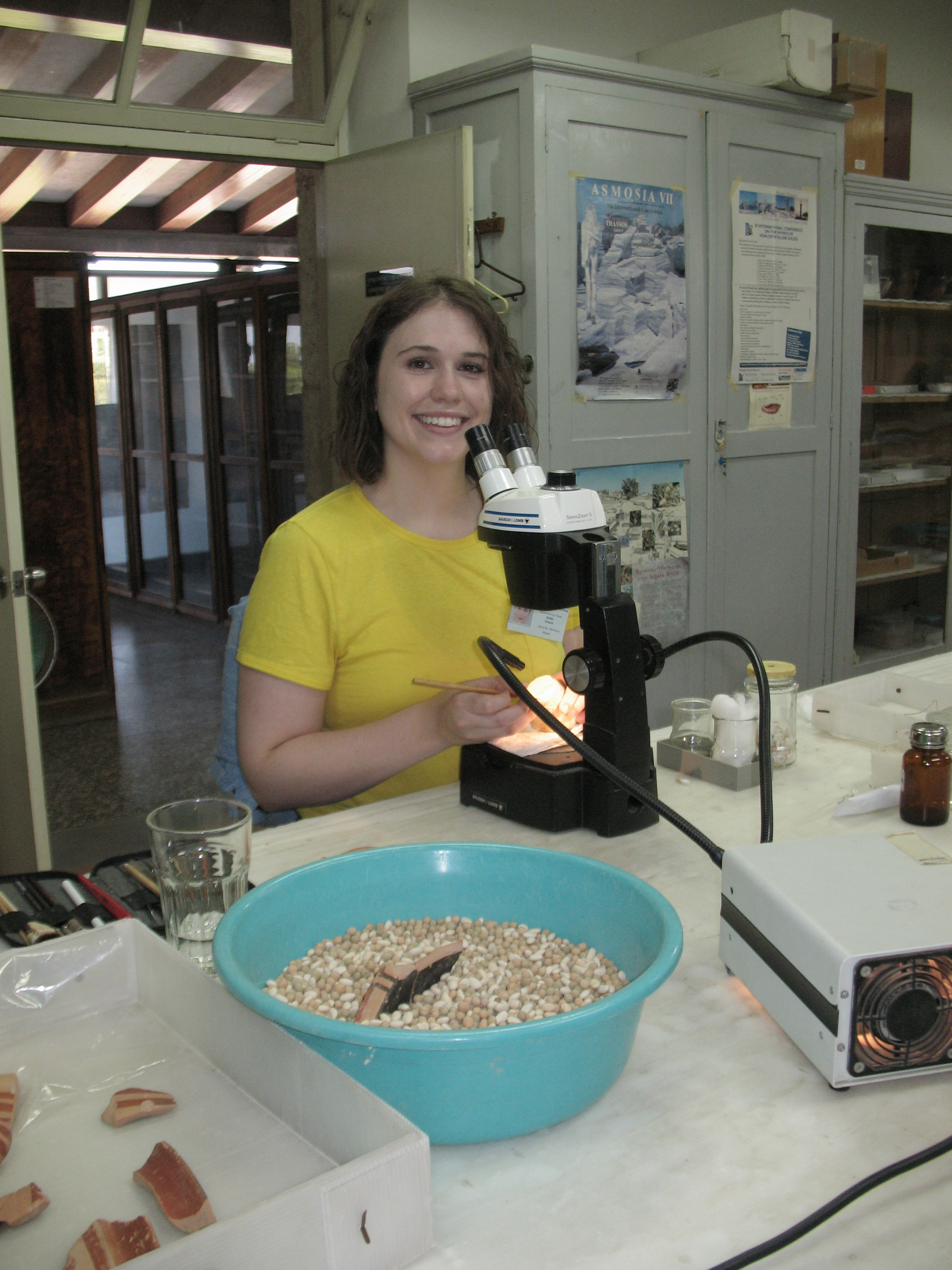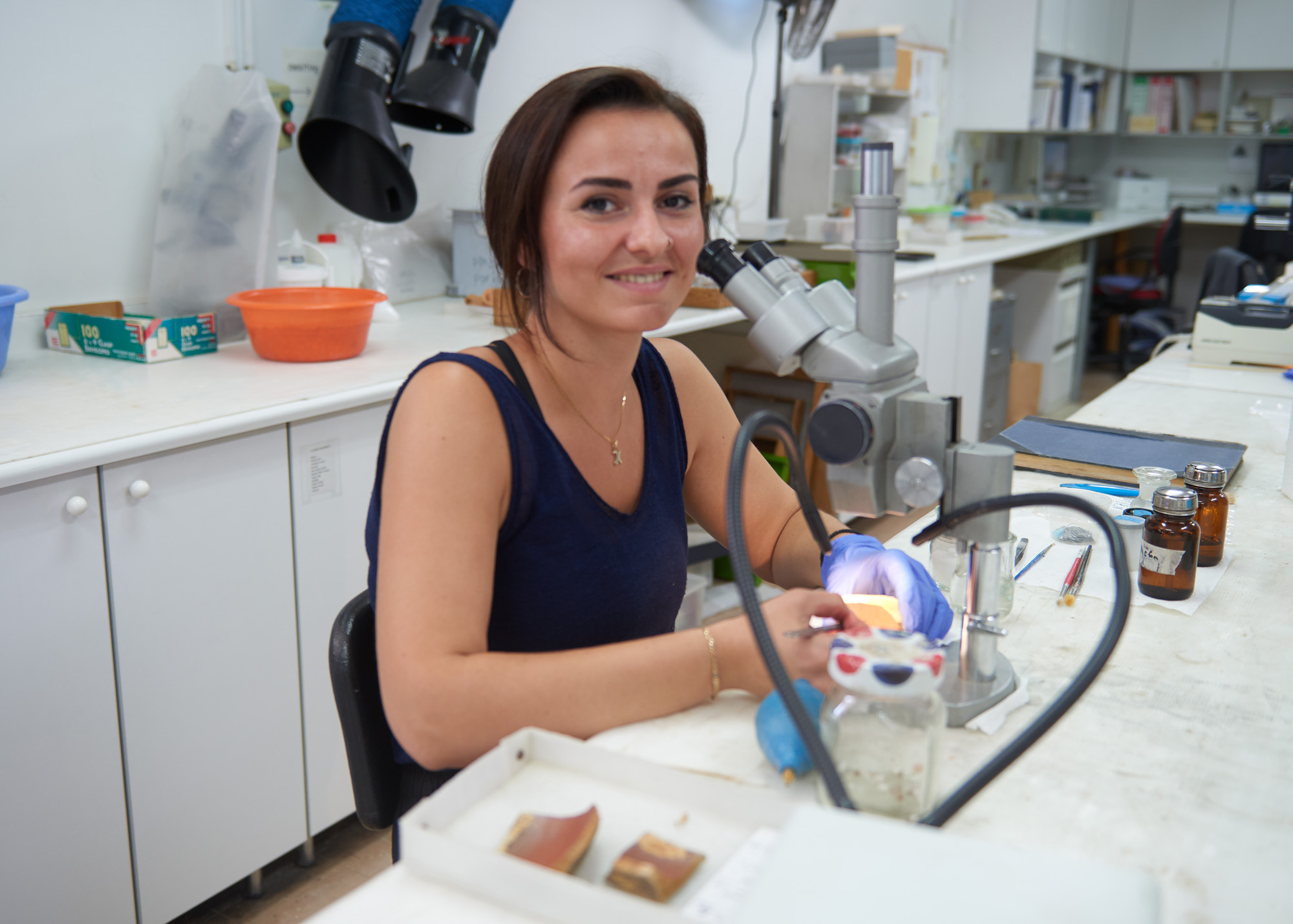From the Trench to the Lab: Learning to Conserve Archaeological Material at the Agora
For over 20 years, the Conservation Laboratory of the Agora Excavations runs a summer internship program, offering as many as three positions to students or recent graduates of recognized training programs in the conservation of material culture.
During an active and demanding excavation season, interns are given the opportunity to apply their theoretical knowledge and preservation skills in the treatment of archaeological artifacts. Under the guidance of Agora Conservator Maria Tziotziou, interns are introduced to a combined laboratory conservation work that requires not only post-excavation treatment of freshly excavated material, but also re-treatment of artifacts excavated in the past currently kept in storage.

2018 Agora Conservation Interns working in the field.
This summer, the Agora Conservation Laboratory hosted three eager and highly committed interns, who, during their time at the Agora, gained hands-on experience by treating a great number of artifacts. From objects excavated during the 2018 season to those in storage, the interns treated a range of materials consisting of pottery, stone, copper alloy, lead, iron, glass and animal bone. All completed treatments were fully documented by the interns with detailed digital photography and conservation reports for Agora records.
We thank them for all their hard work and are excited to introduce them in their statements below!

Kaitlyn Wright:
“I am a third year student in the Garman Art Conservation Department at SUNY Buffalo State College with a specialization in objects conservation. I am currently completing my third-year internship at the Metropolitan Museum of Art in the Objects Conservation Department. Before working at the Agora, I had only completed archaeological conservation treatments on ceramics and a limited number of copper alloy objects. Through my time at the Agora I achieved my personal goal of broadening the types of archaeological materials that I have encountered, including glass, stone, lead, copper alloy coins, and bone. The variety of small finds excavated at the Agora allows conservation interns to work through many objects that display a wide range of condition issues – which is a perfect experience for a burgeoning objects conservator. I feel competent in a variety of treatments that I had not performed prior to this excavation season and am incredibly grateful for the experience.”

Gyllian Porteous:
“I am a recent graduate of the Queen’s University Master of Art Conservation program, in Kingston, Canada, with a specialization in the conservation of artifacts. Having completed internships at the Institute for Aegean Prehistory Study Center for East Crete and at the Caere Excavation Project in Cerveteri, Italy, my interest lies heavily in Mediterranean archaeology. It has always been a dream of mine to work at the Athenian Agora Excavations and I was able to fulfill this dream interning there in the summer of 2018. I spent a wonderful 6 weeks in Athens, learning from our supervisor, Maria Tziotziou, and from the other interns. Not only was I able to grow my experience treating ancient ceramic, glass, stone, and metal artifacts, but I also learned about the preventive conservation strategies implemented at the Agora. The internship was very beneficial to my development as an emerging archaeological conservator and, as a bonus, allowed me to practice my Greek!”

Christina-Alkisti Staka:
“After completing my Bachelor’s degree in Conservation of Cultural Heritage, I joined the Conservation Master’s program at the University of Lincoln, U.K. During the last term, I was keen to find an internship, looking to expand my experience in conservation of archaeological objects. ASCSA gave me the opportunity to work on freshly excavated finds and re-treat previously excavated objects from the storage. Fortunately, I was able to work on a wide range of materials such as ceramics, copper alloys, stone, lead and bone. During this period, I gained confidence in decision-making, techniques I have previously used, as well as learning new ones. My supervisor, Maria Tziotziou, knew how to balance supported and independent work, something that helped me grow more confident. This internship gave me the chance to work with materials and objects that I had never been before. ASCSA provides a welcoming environment and Stoa of Attalos is a wonderful place to work.”